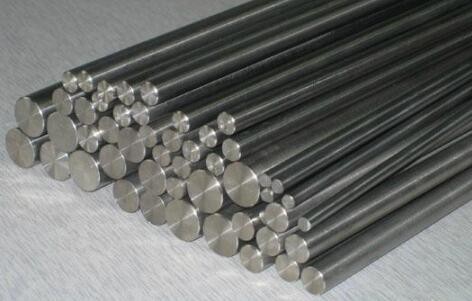- Middle east official partner:
- Email: sales@chemsbury.com
- Mob: 00971 54 3454326
Baoji Hong Ya Da Nonferrous Metal Materials Co.,Ltd.
Add: No.85,Baotai Road,High-tech Development Zone,Baoji City,Shaanxi,China.721013
Contact:Ms.carrolyn
Mob/We chat/ Whats app: +86-15191772362
Tel:0086-917-3854158
Email:carrolyn@hydtitanium.com
Skype:carrolyn851
QQ:379855550
Titanium bars exist in two shapes, one is free carbon (graphite), mainly in cast green titanium, and the other is compound carbon (titanium carbide), mainly in steel making titanium. Titanium carbide is hard However, brittleness, low plasticity, and proper content can improve the strength and hardness of titanium rods. Too much content makes titanium rods difficult to cut. This is the reason for the poor cutting function of steelmaking titanium. Graphite is very soft and low in strength. Its presence can add the casting function of titanium bars.

During the extrusion of titanium, the refractory material forming the titanium mouth is eroded, the diameter of the titanium mouth is increased, and the depth is shortened; when the titanium mouth is blocked, the eroded part must be restored to its original state to maintain the depth of the titanium mouth. Therefore, the key problem when plugging the titanium mouth is to increase the depth of the titanium mouth or increase the length of the horizontal mud pack at the titanium mouth. Generally, when plugging the titanium port, the amount of shotgun mud injected is much larger than the amount required to fill the internal space of the titanium port, which is generally twice the internal volume of the titanium port. If the excessive gun mud cannot be penetrated, the depth of the titanium mouth cannot be increased. If there is nothing other than titanium water or slag in the titanium mouth area of the furnace, the mud that is driven into the furnace is quickly heated, and it will break into small pieces and float upward. To increase the depth of the titanium mouth, the injected cannon mud must be bonded to the old mud bag around the titanium mouth, and stay for a period of time to form a whole with the later mud bag. Therefore, there must be a space to accommodate mud in the titanium mouth area in the furnace, so that the main part of the surface of the mud bag is covered by the dead material column, so that the depth of the titanium mouth may increase.
Silicon (Si):
It can promote the separation of carbon contained in titanium rods into graphite, can deoxidize, reduce the gas holes of castings, improve the fluidity of molten titanium rods, and reduce the shortening of castings. Titanium rods become hard and brittle.
Manganese (Mn):
Thallium is soluble in titanium body and cementite. In the production of raw titanium in a blast furnace, the appropriate manganese content can improve the casting function and cutting function of titanium rods. In the blast furnace, manganese can also form manganese sulfide with harmful impurities sulfur and enter the slag.
Through the pre-set mud pack, it can be ensured that the blast furnace can form a stable titanium mouth channel during the initial period of time, so as to maintain the depth of the titanium mouth. After the blast furnace is started, if the ramming material is washed away by the wear of the slag and the coke ore layer, even if the cannon mud is driven in, it will float away without increasing the depth of the titanium mouth. It is necessary to make the injected cannon mud form a mushroom-shaped mud toe in the furnace charge, which can withstand the erosion and wear of the titanium water circulation, and at the same time, it can be drilled during the next opening process to ensure the stability of titanium production during production.
Samarium Phosphorus (P):
Tritium is attributed to harmful elements, but phosphorus can add the fluidity of titanium water. This is because sulfur reduces the melting point of raw titanium, so some products often have a higher phosphorus content. However, the presence of phosphorus makes titanium hard and brittle. Excellent raw titanium should have a small phosphorus content. In order to add fluidity, the phosphorus content can reach 1.2%.
Sulfur (S):
It is a harmful element in titanium bars. It promotes the connection between titanium and carbon, makes titanium hard and brittle, and forms a low melting point titanium sulfide with titanization. Titanium bars are not suitable for casting small parts. The rule of sulfur content in cast titanium rods must not exceed 0.06% at most.

Baoji Hong Ya Da Nonferrous Metal Materials Co.,Ltd.
Add: No.85,Baotai Road,High-tech Development Zone,Baoji City,Shaanxi,China.721013
Contact: Ms.carrolyn
Mob/We chat/ Whats app: +86-15191772362
Tel:0086-917-3854158
Email:carrolyn@hydtitanium.com
Skype:carrolyn851
QQ:379855550
We sincerely welcome friends from all over the world to cooperate with us on the basis of long-term mutual benefits. We are looking forward to receiving your enquiries soon.
QR Code
